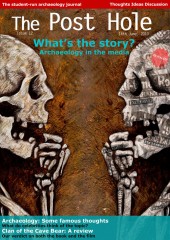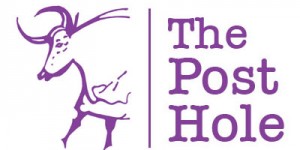Thanks Erin for giving me the opportunity to put forward my personal thoughts on the questions you have raised.
Erin Lewis - How long have you been a metal detectorist?
Phil Dunning - I've been a metal detectorist for about 8 years now after working in the Electricity Supply Industry in the Design of Protection and Control Systems and in Project Engineering the installation of control systems at Substations for the National Grid Company.
EL - What first got you interested in the hobby?
PD - I saw it mentioned on the Internet and bought a magazine. There is a little ploughed land available near where I live so I joined the York Club who have outing organisers who obtain permission to detect on local farms. The members pay to attend each outing, the proceeds over the years have been given to over 30 charities.
EL - In your opinion what is metal detecting about compared to how it is presented in the media?
PD - I think the media is misleading people as to what the hobby is really all about, resulting in 'treasure hunters' instead of 'history hunters' buying detectors. People who buy detectors for finding treasure (which is legal), are not necessarily interested in saving our history for future generations which is the ethical aspect to the hobby and is so important.I wish the media would present a properly balanced view of the hobby and attract more people who want to contribute to the history of our country. (Click here for further details)
EL - How important is metal detecting to the study of the past?
PD - More important than some of the archaeologists, detectorists and general public realise, we are all somewhat illiterate until informed on this specialised subject. Metal detectorists are now an essential part of a team on archaeological digs and come into their own at flagging up new sites due to high concentrations of finds and can determine the location of battlefields and troop positions by the fall of shot and items lost during the battle. (Click here for further details)
Recording find spots to 6, 8 and 10 figure National Grid References (NGR's) benefits our heritage in many ways; Domestic utensils and surface pottery remains show areas of occupation. Tools, worked or repaired objects and materials show the location of workshops, technologies and resources used in manufacture, patterns of production, the geography of local and overseas trade and communication.
Artefacts compete to be the only existing complete example and the most fully recorded example. Their format, design, function, use, wear and repair show us how they changed over the years. Jewellery shows us the dress style of the area and period. Coins show us how the Emperor or King dressed and even how he wore his hair. Even the humble grot or brooch can show us the date of a particular site and places where trade took place. Votive offerings, weapons, musket balls and grave goods, show us how and where our ancestors worshipped, fought and died.
A concentration of objects found in a small area might lead to a new archaeological site such as a settlement, temple, fort, workshop, burial/cremation, battle ground or market place etc being discovered, or show where a hoard was buried.
Another advantage of finding objects in a small area is to be able to date the site (made easier by dating any coins found), so dating other objects found in the same area that previously were undated. Dating objects on one site assists in the dating of objects on other sites too. Knowing where nothing is found is also valuable 'negative evidence' for the Finds Liason Officer. Detecting finds throughout Britain are daily adding to and even re-writing our history for the benefit of future generations.
EL - There is a code of practice which recommends how to go about metal detecting but it is voluntary, do you think this should be enshrined in law and why?
PD - I think it would be impossible to police if made compulsory. Since the setting up of the Portable Antiquities Scheme (PAS)over 568,000 objects have been recorded by over 17,000 people, the vast majority being detectorists. The number of PAS recorders is steadily growing due to PAS outreach.
I particularly appreciate and welcome the visits of Liz Andrews-Wilson to our Club (PAS Finds Liaison Officer), and Sam Moorhead (specialist on Iron age/Roman Coins). Liz takes our finds to the Yorkshire Museum, identifies, weighs and measures them, records them on the database and returns them to the Club free of charge. Anyone joining the Club MUST agree to record with PAS.
EL - How would you recommend going about getting involved with the hobby for first-timers?
PD - I would recommend joining a Metal Detecting Club such as York and District, the advantages of this are that land is available, you can make new friends and get help along the steep learning curve.
Clubs are often invited to get involved in Community Archaeology Projects for example the York Club has just completed a survey at Heslington where the University Campus is being extended. The survey, headed by Steve Roskams and Cath Neal was attended by 16 of our members who between them put in 36 man days detecting of which the Club is very proud. (Click here for more information on getting involved)
Alternatively a forum like UK Detectornet (UKDN) can provide vast amounts of information about the hobby which can be studied at your convenience and you can make online friends too. The site is dedicated to promoting Responsible Metal Detecting and fully supports the PAS.
One of my concerns: The present system of surveying land prior to construction of roads, supermarkets, estates, university complexes etc, allows only a tiny percentage of a site to be surveyed and the vast majority of detectable metal finds to be covered in tarmac or built on. Also many Battlefield sites are unprotected and at risk from the plough, chemicals etc. There is an army of metal detectorists willing to help with surveys and confirm battlefield locations and unlock their history, please let us help more, we have Club members ready and willing to do this free of charge.
Please record your finds with the Portable Antiquities Scheme for the benefit of future generations
Many thanks to Phil for his time and interest.







